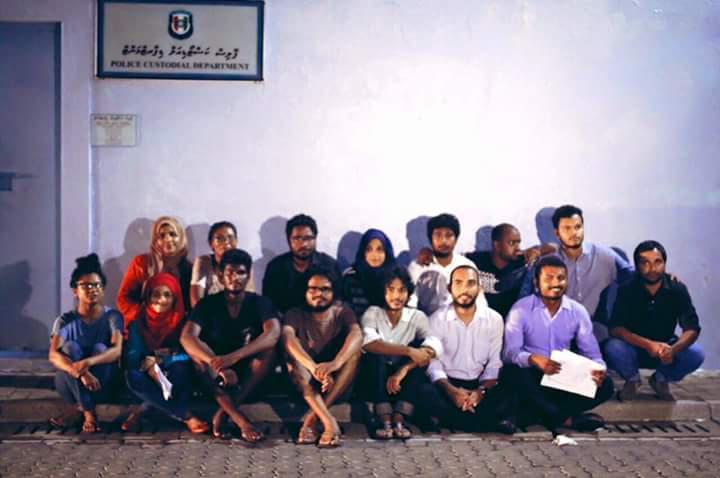Arresting the fourth estate
It is perhaps not the best idea to jail a bunch of journalists. It means that those who hold the pen, the power to communicate, feel a rare sense of empathy towards the rarely seen, writes Xiena Saeed.

07 Apr 2016, 09:00
“Everyone has the right to freedom of the press, and other means of communication, including the right to espouse, disseminate and publish news, information, views and ideas. No person shall be compelled to disclose the source of any information that is espoused, disseminated or published by that person,” Article 28, The Constitution of the Republic of Maldives.
It is perhaps not the brightest idea to jail a bunch of journalists. It means they get a view of what is hidden from common society: the lives lived behind bars. It means that those who hold the pen, the power to communicate, feel a rare sense of empathy towards the rarely seen. In a place like the present-day Maldives, where people are detained for their views or the posts they hold, people who are referred to as ‘prisoners of conscience’, it is perhaps not the best idea to arrest seventeen committed journalists, committed enough to risk arrest for press freedom, to make them realise the unjustness of what it feels like to be deprived of their absolute right to liberty.
It means that we now know how it feels to be told to strip off our clothes and squat naked, inside a putrid toilet with an open doorway with a policewoman staring at us. It means we know that the toilet in our cells doesn’t have a seat. That to shower, and clean ourselves after urinating and defecating, we have to use the same cut up PET bon aqua bottle. It means to bathe, we have to fill up a cut-off jerry can with water, the bottom of which is dubiously grimy, and use the same cut-off PET water bottle as a container to pour water on our bodies. It means we know that those in detention go through the absolute indignity of cleaning themselves in small, half open enclosures, covered only loosely with rattan mats, displaying whoever is inside to the rest of their cell. The bathing enclosure, also, for the record, smells like years of accumulated human shit that was never quite cleaned properly. It is terrible.
It means we know what it is like to clean a toilet that has no seat with our feet and soap while holding on to a grimy wall so we don’t slip off. We know the claustrophobia of seeing rats crawling over the railings of the cage we were in, sitting on a floor rich with ants, and leaning against walls engraved with toothpaste – evidence of years of restrained frustration.
Become a member
Get full access to our archive and personalise your experience.
Already a member?
Discussion
No comments yet. Be the first to share your thoughts!
No comments yet. Be the first to join the conversation!
Join the Conversation
Sign in to share your thoughts under an alias and take part in the discussion. Independent journalism thrives on open, respectful debate — your voice matters.




